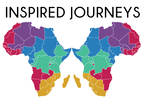
This Itinerary is disabled. Please contact the itinerary creator for more information.
SAMPLE Congo & Tanzania Safari
18 Nights
Lake Kivu, Virunga National Park, Kigali, Lake Victoria, Tanzania, Eastern Serengeti, Ghana and Nyerere National Park

This Itinerary is disabled. Please contact the itinerary creator for more information.
18 Nights
Lake Kivu, Virunga National Park, Kigali, Lake Victoria, Tanzania, Eastern Serengeti, Ghana and Nyerere National Park